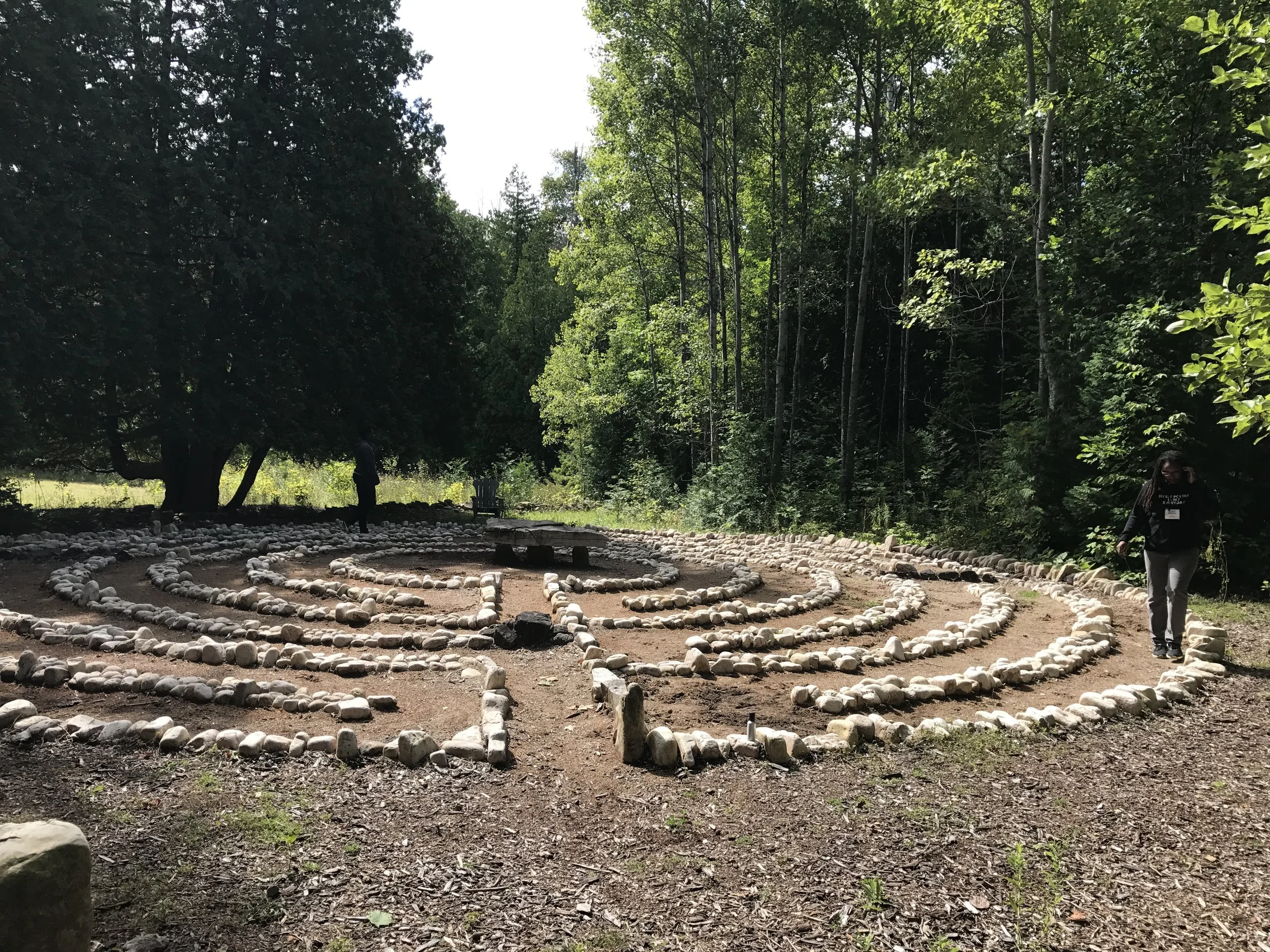Solstice -- the necessity of imagination and the gift of the dark
/Everything you desire requires first that you imagine it. This is your most important job.
And it needs the dark. This is why we close our eyes to visualize. This is why we dream while asleep. We come unfixed from what our awake, light-loving brain wants to name “reality.” And in this state we go wild. We go child. We go deep and broad and infinite.
Only in the dark can we see clearly what is possible, unlimited by the physical nature of what’s around us, what is presented to us as reality
This is as true of what we imagine for the world as it is of what we imagine for ourselves.
But we disregard, devalue, fear the dark.
We see the winter solstice as a time to move steadily toward the light, the promise of spring, instead of dwelling here, in the present moment, in the gift of this rich and abundant darkness.
When I think of how much we need the dark and the imagination it offers, I’m reminded of this poem by Martín Espada, Imagine the Angels of Bread:
This is the year that squatters evict landlords,
gazing like admirals from the rail
of the roofdeck
or levitating hands in praise
of steam in the shower;
this is the year
that shawled refugees deport judges
who stare at the floor
and their swollen feet
as files are stamped
with their destination;
this is the year that police revolvers,
stove-hot, blister the fingers
of raging cops,
and nightsticks splinter
in their palms;
this is the year that darkskinned men
lynched a century ago
return to sip coffee quietly
with the apologizing descendants
of their executioners.
This is the year that those
who swim the border's undertow
and shiver in boxcars
are greeted with trumpets and drums
at the first railroad crossing
on the other side;
this is the year that the hands
pulling tomatoes from the vine
uproot the deed to the earth that sprouts
the vine,
the hands canning tomatoes
are named in the will
that owns the bedlam of the cannery;
this is the year that the eyes
stinging from the poison that purifies toilets
awaken at last to the sight
of a rooster-loud hillside,
pilgrimage of immigrant birth;
this is the year that cockroaches
become extinct, that no doctor
finds a roach embedded
in the ear of an infant;
this is the year that the food stamps
of adolescent mothers
are auctioned like gold doubloons,
and no coin is given to buy machetes
for the next bouquet of severed heads
in coffee plantation country.
If the abolition of slave-manacles
began as a vision of hands without manacles,
then this is the year;
if the shutdown of extermination camps
began as imagination of a land
without barbed wire or the crematorium,
then this is the year;
if every rebellion begins with the idea
that conquerors on horseback
are not many-legged gods, that they too drown
if plunged in the river,
then this is the year.
So may every humiliated mouth,
teeth like desecrated headstones,
fill with the angels of bread.
In Espada’s poem, he states “This is the year…” and we think, no it isn’t. It can’t be. These are impossible things. Unchangeable things. At best, long-term incremental change things. But we love the daringness of stating it. And then he tells us why those daring statements are necessary:
If the abolition of slave-manacles
began as a vision of hands without manacles,
then this is the year;
if the shutdown of extermination camps
began as imagination of a land
without barbed wire or the crematorium,
then this is the year;
if every rebellion begins with the idea
that conquerors on horseback
are not many-legged gods, that they too drown
if plunged in the river,
then this is the year.
He’s gone into the dark and sees HOPE there. Sees what is required for change for this to be the year: imagination. Vision. Possibility.
If no one believed legal slavery could end, it would never have ended. If no one had believed the Holocaust could stop, it never would have stopped. If we continue to believe in our demons, our saboteurs, our invaders as immortal, they cannot be stopped.
But if we do imagine, if we do envision, then this is the year. This is the year.
At the winter solstice, we have the most dark we will have all year. What do we want to do with it? How will we use this gift of the dark, the wild and fertile imagination? What will we find or make in that pitch black room?
At Yule we celebrate POTENTIAL energy -- stored energy, chemical, gravitational, mechanical, and nuclear. This is the energy of the dark half of the year, underground energy, dark energy, and this night is the peak of that potential. (The summer solstice brings us the peak KINETIC energy -- electrical, heat, light, motion, and sound.)
So here is a winter solstice practice for you:
Write seven or more almost impossible things you’re going to imagine into being this year -- remembering that aiming high, imagining big, helps move the needle toward at least incremental change. That big change can’t happen without big, clear imagining.
What will end this year? What will blossom? Don’t worry about the language being pretty or smart, but be as specific as you can.
This is the year
This is the year
This is the year
This is the year
This is the year
This is the year
This is the year
This is the year.
